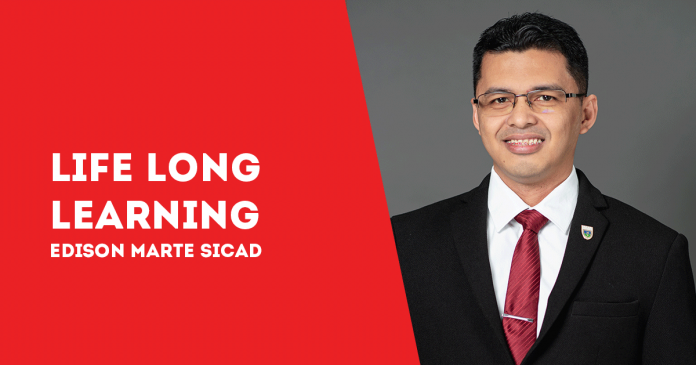
BY EDISON MARTE SICAD
“You can live a lifetime and, at the end of it, know more about other people than you know about yourself…”—Beryl Markham
WE GET a piece, a glimpse, of the jigsaw puzzle, and we get to judge a person already. A picture may speak a thousand words, but a thousand words may be inadequate to fully understand a person’s story.
To create, experience, and cherish a memory is to keep the memory, without necessary sharing it. Today, we must share it with no intention of keeping it.
We have lost the art of appreciating our experiences in solitary bliss. Today, we get preoccupied, look forward with eagerness, as to how others will react to our story. In a way, we spoil our own memories — or that of others.
There is nothing wrong being appreciated by others. But if such appreciation becomes a prerequisite to validate the significance of our experiences, then we have created a burden of expectation.
‘Jamming the mango’
There is this song whose lyrics depict a person’s character — and that of the singer as well. The message is obvious: we get to entertain ourselves at the expense of someone else’s mistakes or inferior attributes. The creativity and artistic expression of the artists involved are admired by some (though others may raise an eyebrow). The melody is catchy. The melody was “borrowed” (a copy) from another song.
The singer is allegedly known for his obnoxious (and witty) personality based on his actions. And in his rendition of this song.
Well, the lyrics of the song allude to someone who is mango, and a kagaw. I am not questioning the truthfulness of the adjectives for lack of adequate personal knowledge. I am only asking if it was the proper or the right thing to do.
But in politics, proper is not a proper term. And there is no such thing as the right thing to do, everything is by personal fiat. Grandstanding? Maybe. But motives are highly elusive though apparent in some sense.
Now, this singer explained, in his own AM radio timeslot, that he did not originally give those labels to the congresswoman: mango and kagaw (the title of his latest song). And so, as the logic may go, he is not to be blamed for he is only borrowing the terminologies.
The question is, even if the descriptions are true, that the lady politician lacks intellectual capacity or ability, does he have the right and the freedom to make it into a song?
Somehow, the congresswoman could also be (slightly) amused for the attention and effort the singer devoted to record and release a viral song about her.
But then, if this congresswoman represents the City of Iloilo, for the Ilonggos voted for her as their representative, will it also be logical to conclude that in attacking the representative you are also, indirectly, insulting the people she represents?
The singer further explained that the congresswoman betrayed him or disrespected him. And so, maybe as a sort of karma, she had it coming.
I (and other coffee lovers) admit that the singer is a powerful enemy and a great ally. He is admired (hated or ridiculed) because of his toughness in confronting issues and his sharpness in reading the sign of the times. It was actually from him that I learned in advance that the daughter will run for congress, foreshadowing a political dynasty.
With this issue, we can aptly say, “the tale is long, self-dramatizing, and unmistakably competitive. Yet we are touched, not embarrassed, by it because we’ve already been given a taste of the rawness inside the man.” — Eiseley.
Bottom line: A politician who voluntarily stopped (resigned) serving his constituents is now a singer who criticizes someone else who is somehow, for all intents and purposes, continues to serve her constituents.
Now, it is all up to the Ilonggos in the coming election.
“Every person must, in the exercise of his rights and in the performance of his duties, act with justice, give everyone his due, and observe honesty and good faith.” (Article 19, New Civil Code)/PN







